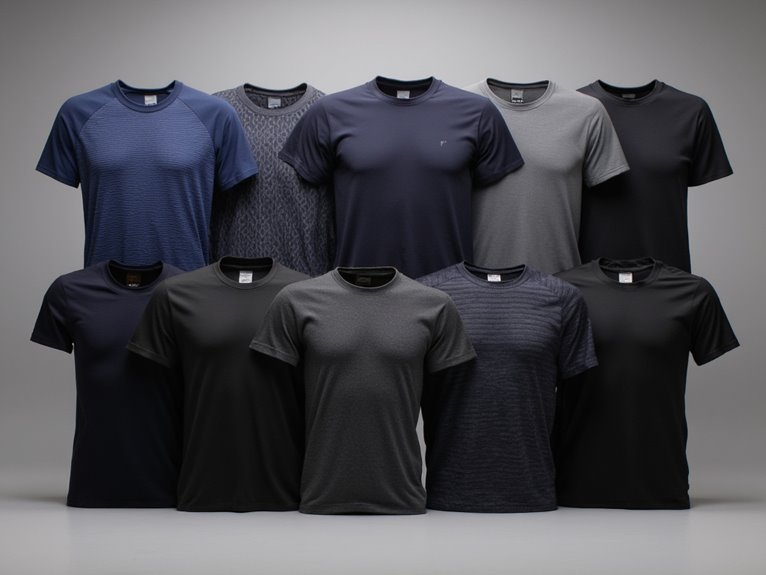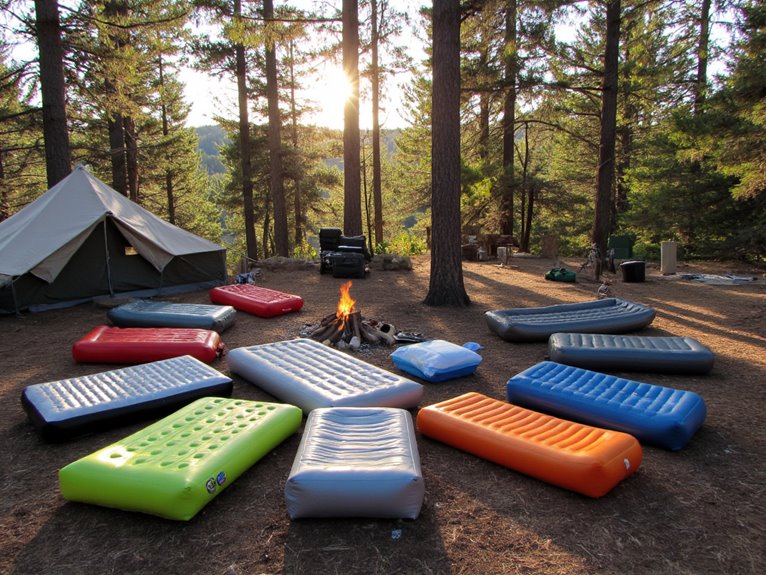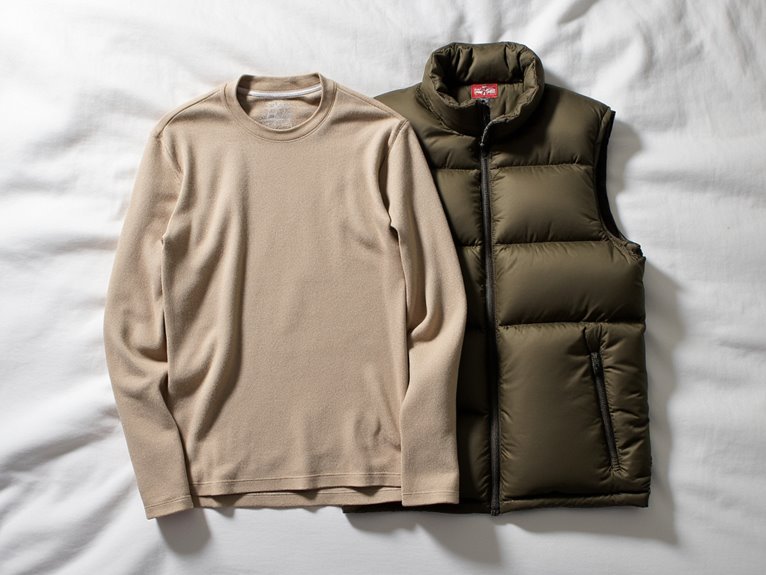Can Jetboil Canisters Be Refilled?
Jetboil canisters are not officially refillable by the manufacturer, leaving users to investigate alternative methods or consider eco-friendly alternatives. The company emphasizes responsible waste management and promotes recycling, but does not offer a refill program or accept returns of empty canisters for refurbishment or reuse. While users may attempt DIY refills, it's essential to take necessary precautions to avoid safety risks. To minimize environmental impact and optimize resources, it's vital to weigh the benefits of refilling against potential risks and examine alternatives. Looking beyond Jetboil's official stance may reveal more sustainable and efficient options for outdoor enthusiasts.
We are supported by our audience. When you purchase through links on our site, we may earn an affiliate commission, at no extra cost for you. Learn more. Last update on 28th January 2026 / Images from Amazon Product Advertising API.
Jetboil's Official Stance on Refills
Jetboil explicitly states that its fuel canisters are recyclable and encourages users to recycle them, but the company does not currently offer a refill program or accept returns of empty canisters for refurbishment or reuse.
This stance is clearly outlined on their website, emphasizing the importance of responsible waste management.
While Jetboil promotes eco-friendly practices, their refill policy remains limited.
Users must recognize that they are responsible for properly disposing of empty canisters, as there is no official take-back program in place.
Understanding Canister Construction
The proprietary canister design, comprising a specialized valve and inner liner, plays a crucial role in maintaining the safe and efficient operation of Jetboil's fuel systems.
This design facilitates the canisters to maintain a consistent internal pressure, allowing for reliable fuel flow and peak performance.
Key features of the canister construction include:
A robust outer casing that withstands high pressures and extreme temperatures.
A precision-engineered valve that guarantees a consistent fuel flow rate.
An inner liner that prevents corrosion and maintains fuel purity.
A leak-resistant seal that safeguards safe and efficient fuel delivery.
A durable construction that withstands repeated use and refueling.
Types of Fuel for Refilling
Three types of fuel are available for refilling Jetboil canisters, each with its own unique characteristics and benefits.
Isobutane is a popular choice, offering a high energy density and clean-burning performance.
Propane is another option, providing a high heat output and ease of use.
A blend of isobutane and propane is also available, offering a balance of performance and efficiency.
When selecting a fuel type, consider factors such as camping conditions, cooking style, and personal preference.
Understanding the characteristics of each fuel type is essential for peak performance and safety when refilling Jetboil canisters.
Safety Precautions for Refilling
Refilling Jetboil canisters requires attention to safety protocols to prevent accidents and guarantee a secure cooking experience. When refilling, it's essential to prioritize caution to avoid risks associated with handling flammable gases.
To ensure a safe refilling process, follow these guidelines:
Handle with care: Always handle canisters and fueling equipment with clean, dry hands, and avoid touching electrical devices or open flames.
Ventilate the area: Refill in a well-ventilated area, away from open flames, sparks, or hot surfaces.
Inspect equipment: Regularly inspect canisters, hoses, and valves for signs of wear or damage.
Follow manufacturer guidelines: Adhere to the manufacturer's instructions for refilling and maintenance.
Store safely: Store canisters and fueling equipment in a cool, dry place, away from children and pets.
DIY Refill Methods and Tools
Having established a safe refilling environment, attention can now be turned to the various DIY refill methods and tools available to Jetboil users.
One popular method is the 'cylinder swap,' where users refill their canisters using a separate, pressurized cylinder. This requires a refill adapter, which can be purchased online or fabricated by the user.
Another method involves using a refill kit, which typically includes a refill valve, hose, and pressure gauge. These kits can be sourced from outdoor gear retailers or online marketplaces.
Regardless of the method chosen, careful adherence to the manufacturer's instructions and necessary safety precautions are crucial to avoid accidents.
Weighing Cost and Environmental Impact
When considering Jetboil canisters, it's essential to weigh the cost and environmental impact of these fuel sources.
A thorough examination of fuel efficiency, waste reduction strategies, and cost savings analysis can help outdoor enthusiasts make informed decisions about their camping gear.
Fuel Efficiency Comparison
Comparing the fuel efficiency of Jetboil canisters is essential for outdoor enthusiasts seeking to minimize their environmental footprint while optimizing their budget. Understanding the fuel efficiency of different canisters can help reduce waste and lower costs.
Jetboil 100g canisters have a fuel efficiency of 20-25 minutes per 100g
Jetboil 230g canisters have a fuel efficiency of 45-50 minutes per 230g
Jetboil 450g canisters have a fuel efficiency of 90-100 minutes per 450g
Jetboil 600g canisters have a fuel efficiency of 120-130 minutes per 600g
Jetboil's high-efficiency canisters can increase burn time by up to 30%
Waste Reduction Strategies
To minimize waste and optimize resources, outdoor enthusiasts can adopt strategic approaches to reduce the environmental impact and cost associated with Jetboil canisters.
One effective strategy is to opt for canisters with recyclable materials and participate in recycling programs.
Additionally, users can extend the life of their canisters by properly maintaining and storing them.
Another approach is to ponder purchasing canisters in bulk or sharing them with fellow outdoor enthusiasts.
By adopting these waste reduction strategies, individuals can substantially minimize their environmental footprint while also reducing waste disposal costs.
Cost Savings Analysis
By adopting waste reduction strategies, outdoor enthusiasts can not only minimize their environmental footprint but also reap substantial cost savings, making a thorough cost-benefit analysis of Jetboil canisters a vital examination.
Reduced waste disposal costs: Refilling or recycling Jetboil canisters can notably reduce waste disposal costs, resulting in substantial savings over time.
Lower fuel costs: Refurbished or refilled Jetboil canisters can provide the same performance at a lower cost, reducing fuel expenses for outdoor enthusiasts.
Extended product lifespan: Proper maintenance and refurbishment of Jetboil canisters can extend their lifespan, delaying the need for costly replacements.
Government incentives: In some regions, governments offer incentives for environmentally friendly practices, such as recycling or reusing Jetboil canisters, which can lead to additional cost savings.
Brand loyalty and reputation: Embracing sustainable practices can bolster a brand's reputation and foster loyalty among environmentally conscious consumers.
Refillable Alternatives to Jetboil
For outdoor enthusiasts seeking a more sustainable approach, refillable alternatives to Jetboil canisters offer a compelling solution.
Two notable options are MSR IsoPro Fuel and Coleman Fuel, which provide a reliable and eco-friendly way to power camping stoves and cooking equipment.
MSR IsoPro Fuel
MSR IsoPro Fuel offers a reliable alternative to Jetboil canisters, boasting a high-energy-density formula that yields a longer burn time and reduced emissions.
This fuel is designed for high-performance and efficiency, making it an excellent option for outdoor enthusiasts.
- High-energy-density formula for longer burn times
- Reduced emissions for a more environmentally friendly option
- Reliable performance in cold temperatures
- Compatible with most portable stoves and camping equipment
- Available in various sizes to suit different needs
Coleman Fuel Options
Coleman fuel options provide a range of refillable alternatives to Jetboil canisters, offering outdoor enthusiasts a cost-effective and environmentally friendly solution for their portable stove needs.
These refillable fuel canisters are designed to be reused multiple times, reducing waste and minimizing the environmental impact of outdoor adventures.
Coleman fuel options are compatible with a variety of portable stoves and cooking systems, making them a versatile choice for campers and backpackers.
With refillable fuel canisters, outdoor enthusiasts can enjoy a reliable and efficient cooking experience while also doing their part for the environment.
Community-Tested Refill Techniques
Among outdoor enthusiasts, a variety of creative refill techniques have been developed to reuse Jetboil canisters, reducing waste and saving money.
These community-tested methods have been shared online, providing a valuable resource for those looking to refill their canisters.
Some popular techniques include:
- Using a refill adapter to connect the canister to a larger fuel source
- Draining and cleaning the canister before refilling with a syringe or funnel
- Creating a makeshift refill station using a hose and valve system
- Transferring fuel from a larger container to the canister using a pump or siphon
- Modifying the canister's valve to accept a standard fueling nozzle
Potential Risks and Liability
While creative refill techniques for Jetboil canisters can be cost-effective and environmentally friendly, they also introduce potential risks and liabilities that must be carefully considered.
Improperly refilled canisters can lead to leaks, explosions, or fires, posing a significant threat to user safety.
Additionally, tampering with original equipment manufacturer (OEM) products can void warranties and compromise performance.
Refillers assume liability for any damages or injuries resulting from their modifications.
To safeguard against accidents, outdoor enthusiasts must carefully weigh the benefits of refilling against the potential risks and take necessary precautions to implement safe and responsible practices.





